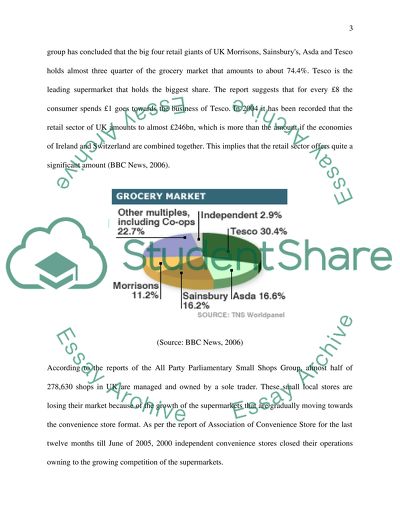Cite this document
(Supermarket Competition - Tesco, Asda, Sainsbury and Morrisons Case Study, n.d.)
Supermarket Competition - Tesco, Asda, Sainsbury and Morrisons Case Study. Retrieved from https://studentshare.org/marketing/1481932-in-the-united-kingdom-the-big-four-supermarkets-of
Supermarket Competition - Tesco, Asda, Sainsbury and Morrisons Case Study. Retrieved from https://studentshare.org/marketing/1481932-in-the-united-kingdom-the-big-four-supermarkets-of
(Supermarket Competition - Tesco, Asda, Sainsbury and Morrisons Case Study)
Supermarket Competition - Tesco, Asda, Sainsbury and Morrisons Case Study. https://studentshare.org/marketing/1481932-in-the-united-kingdom-the-big-four-supermarkets-of.
Supermarket Competition - Tesco, Asda, Sainsbury and Morrisons Case Study. https://studentshare.org/marketing/1481932-in-the-united-kingdom-the-big-four-supermarkets-of.
“Supermarket Competition - Tesco, Asda, Sainsbury and Morrisons Case Study”, n.d. https://studentshare.org/marketing/1481932-in-the-united-kingdom-the-big-four-supermarkets-of.


